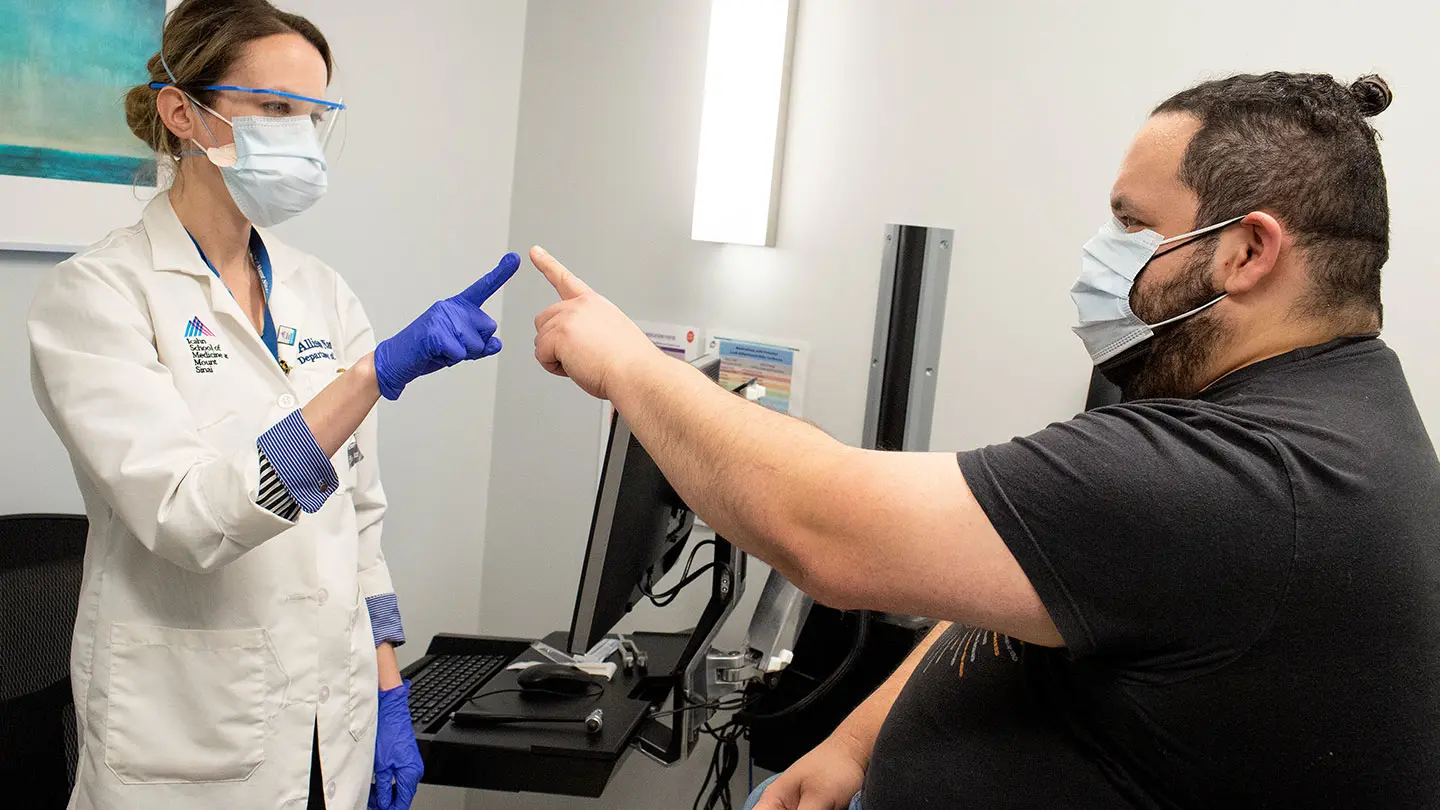Among those specialists is neurologist Allison Navis, MD. Following is a Q&A on what Dr. Navis and others are finding.
Q. What neurological symptoms are you seeing in COVID-19 patients, and how are you treating them?
Dr. Navis:
We are seeing a wide range of symptoms, the most common is cognitive issues (brain fog), headaches, paresthesias/neuropathic pain, dysautonomia, and fatigue. I approach my workup for each symptom as I would with any patient—ordering bloodwork, imaging, or other ancillary tests based on clinical history and exam findings. I offer neuropsychological testing to most patients coming in with primary concern for cognitive changes, especially if the patient is older or has moderate-to-severe COVID (for example, is hospitalized or has complications). Treatment is also based on clinical complaint. For patients with a clear inflammatory neuropathy with clinical deficits and EMG findings, steroids or IVIG may be needed. Otherwise, most treatment is symptomatic and based on the chief complaint. For cognitive changes, assessing potential reversible factors is important, such as sleep, mood, or vitamin/endocrine abnormalities.
Q. What can other neurologists learn from your work with patients at the Center for Post-COVID Care?
Dr. Navis:
We are only beginning to learn and understand post-COVID symptoms based on the experience of clinicians dealing with large numbers of these patients. So far, we are not finding changes on imaging and other diagnostic tests for the majority of patients. While this is reassuring, it does not rule out the possibility that something is occurring that our tests cannot pick up. The findings are reassuring, but we shouldn’t minimize the distress patients are experiencing. A supportive approach based on symptomatic treatment is important.

Allison Navis, MD, at Mount Sinai's Center for Post-COVID Care with patient Esteban Giron.
Q. How challenging are the conditions you’re treating? Are they reversible?
Dr. Navis:
The conditions can be quite challenging to treat as patients are often struggling with these symptoms even if diagnostic testing is often normal. Since we don’t fully understand what is causing these symptoms, it’s not clear if they are ‘reversible.’ What I can say is that many patients have experienced improvement with time and supportive/symptomatic treatment, and I remain optimistic that trend will continue. But we need to learn a lot more about the underlying pathophysiology of the disease.
Q. Does central nervous system (CNS) infection contribute to respiratory failure in COVID-19?
Dr. Navis:
I don’t think there is enough evidence to say for sure. While COVID can infect the CNS, most autopsy studies have shown far more damage occurring from inflammatory and vascular changes, without associated viral particles. The locations of these lesions are diverse and don’t necessarily offer an explanation for respiratory failure. It is possible that extensive inflammatory damage could cause an encephalopathy, or impaired consciousness, that could contribute to respiratory complications, but we can’t necessarily draw that conclusion yet. Nor can we extrapolate autopsy findings on the sickest patients to everyone with COVID, or to everyone hospitalized with COVID.
A multidisciplinary approach is essential for these patients.
Q. How is the Center for Post-COVID Care uniquely equipped/staffed to provide neurological care to COVID patients?
Dr. Navis:
I think the multidisciplinary approach of the Center for Post-COVID Care is essential for these patients. Most come in with multiple systemic issues that require an interdisciplinary team. For example, many patients who see a cardiologist for palpitations and lightheadedness may have some dysautonomia as the cause of their issues, in which case neurology can assist with treatment plans. Mental health and support services are also essential, as many of these patients are dealing with depression, anxiety, and PTSD relating to their experience with COVID. Many of our patients tell us they appreciate having access to diverse specialists with experience treating other post-COVID patients.
To learn more, watch this CNN interview with Dr. Navis https://twitter.com/MtSinaiNeuroRes/status/1356265598649556993?s=20.
Featured

Allison Navis, MD
Assistant Professor of Neurology (Neuro-Infectious Diseases), Icahn School of Medicine at Mount Sinai